In our column, Object Thursday, we highlight many of the cool collection items that we care for and make accessible to researchers. The one common thread to these posts has been that the objects themselves are eye readable, meaning that you do not need a machine to translate the information that lies within the object.
Today’s post is all about the machine readable object. Held within our Special Collections is a myriad of audiovisual formats that require a playback device to transmit the data to the end user. All of these formats are on obsolete media that necessitate immediate migration to a new digital file format.
Amongst the vast Film Archive at the RIHS is a collection of approximately 300 two inch reel to reel Quadruplex videotapes.
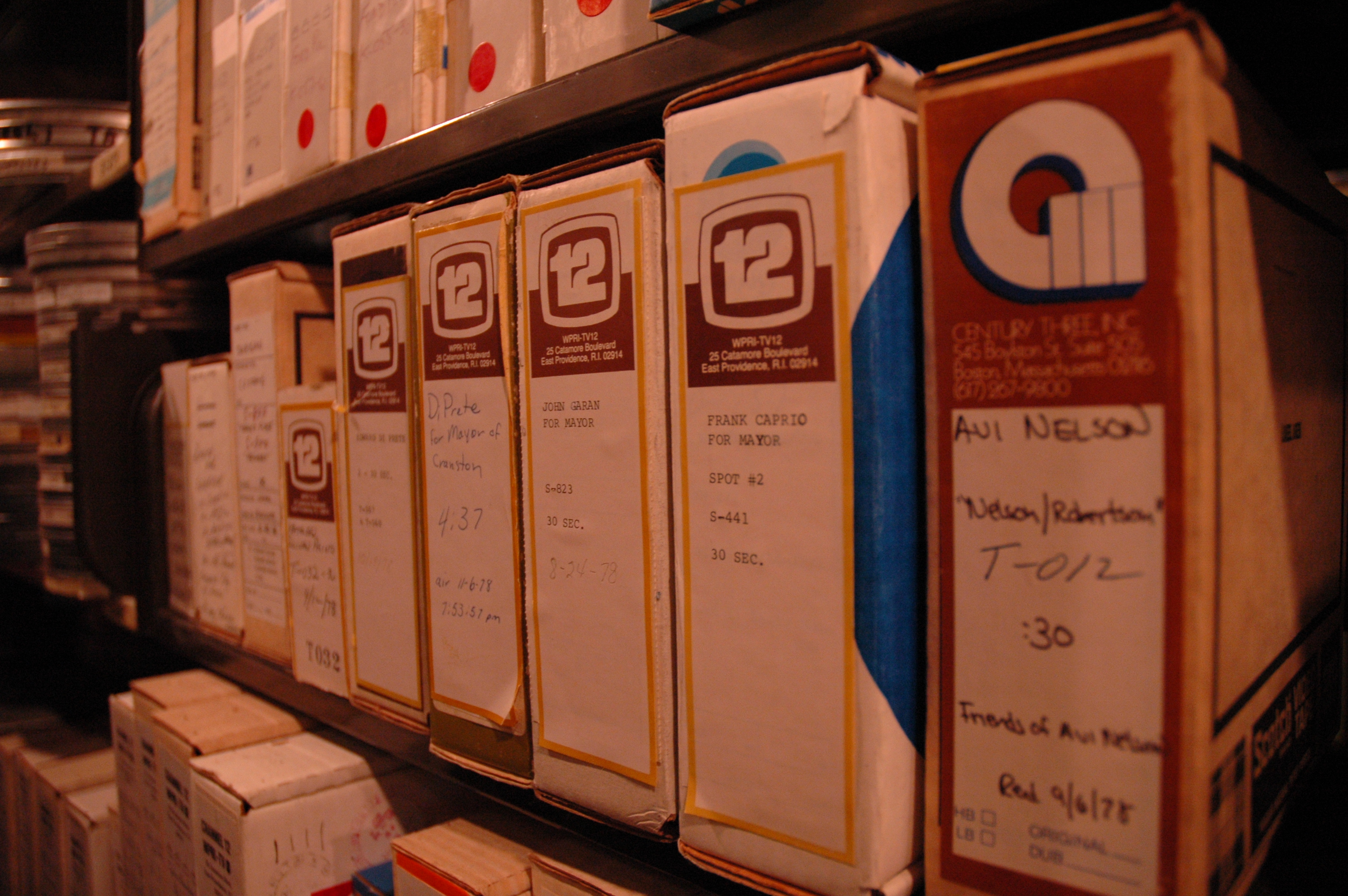
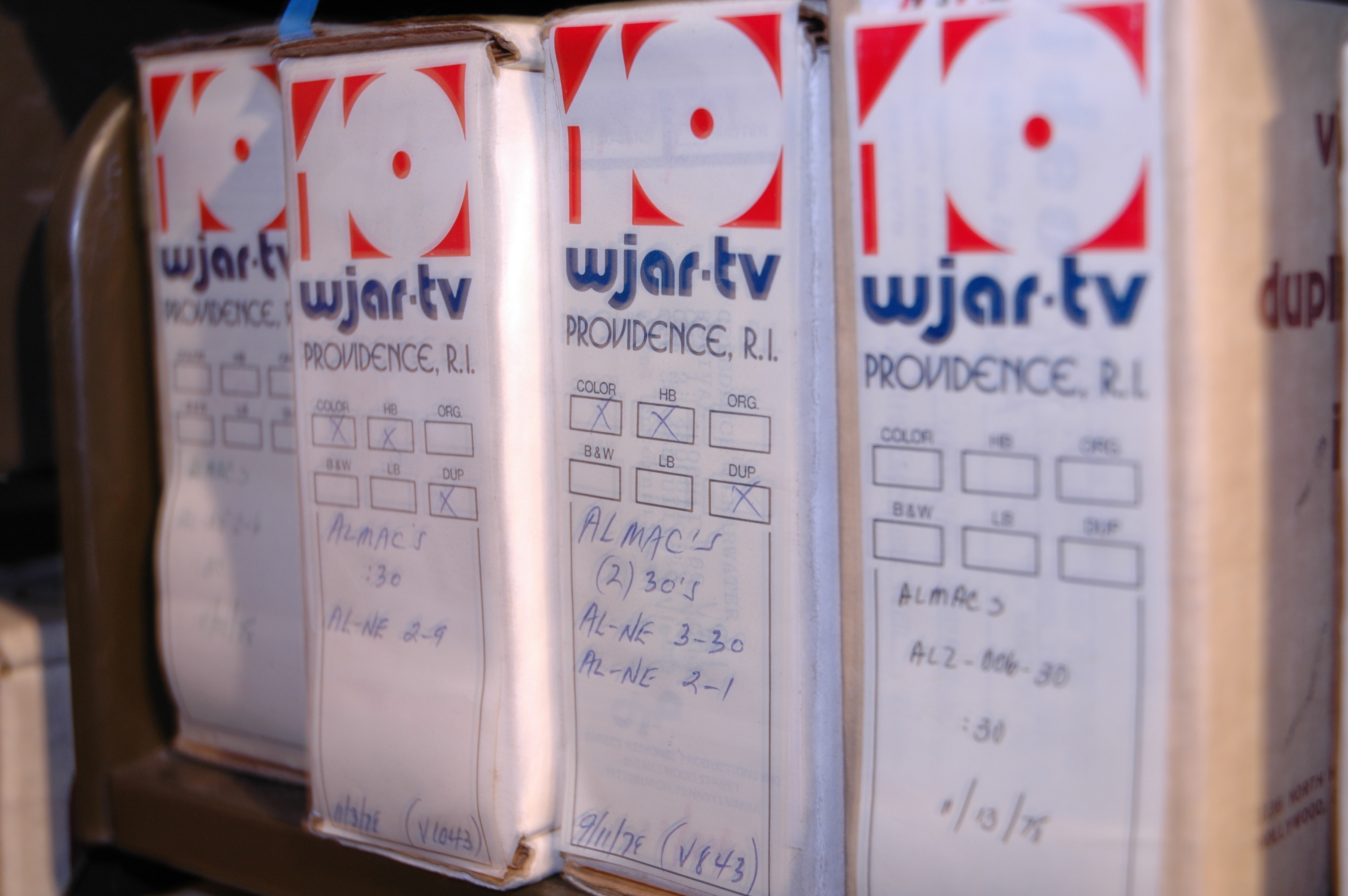
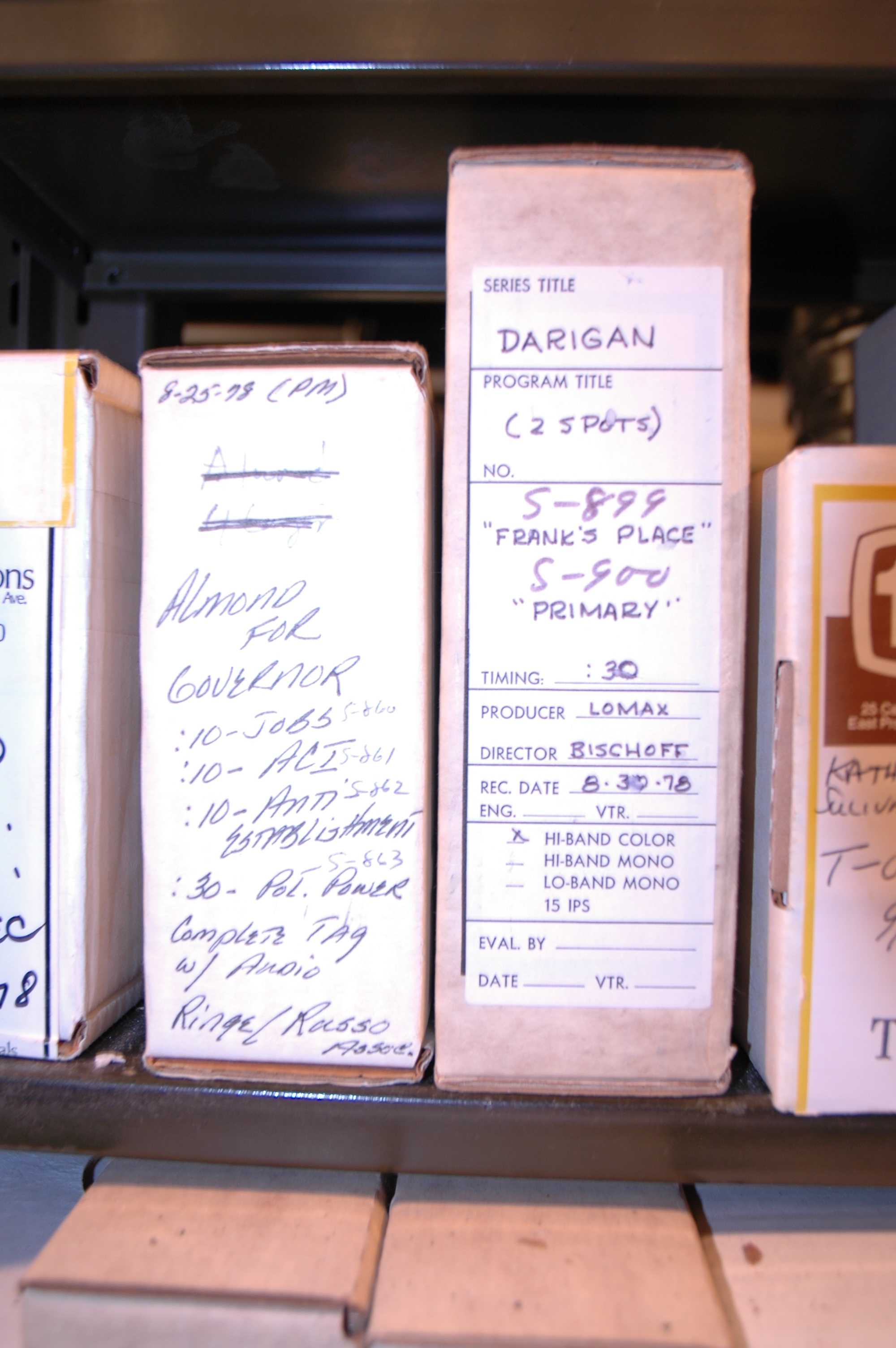
Standard reel sizes were 6.5, 10.5 and 12.5 inches and typically came in cardboard or hard plastic shipping containers. The larger of the reels used metal flanges and weighed up to 30lbs. The majority of the tapes in the RIHS collection are the smaller 6.5 inch reel.
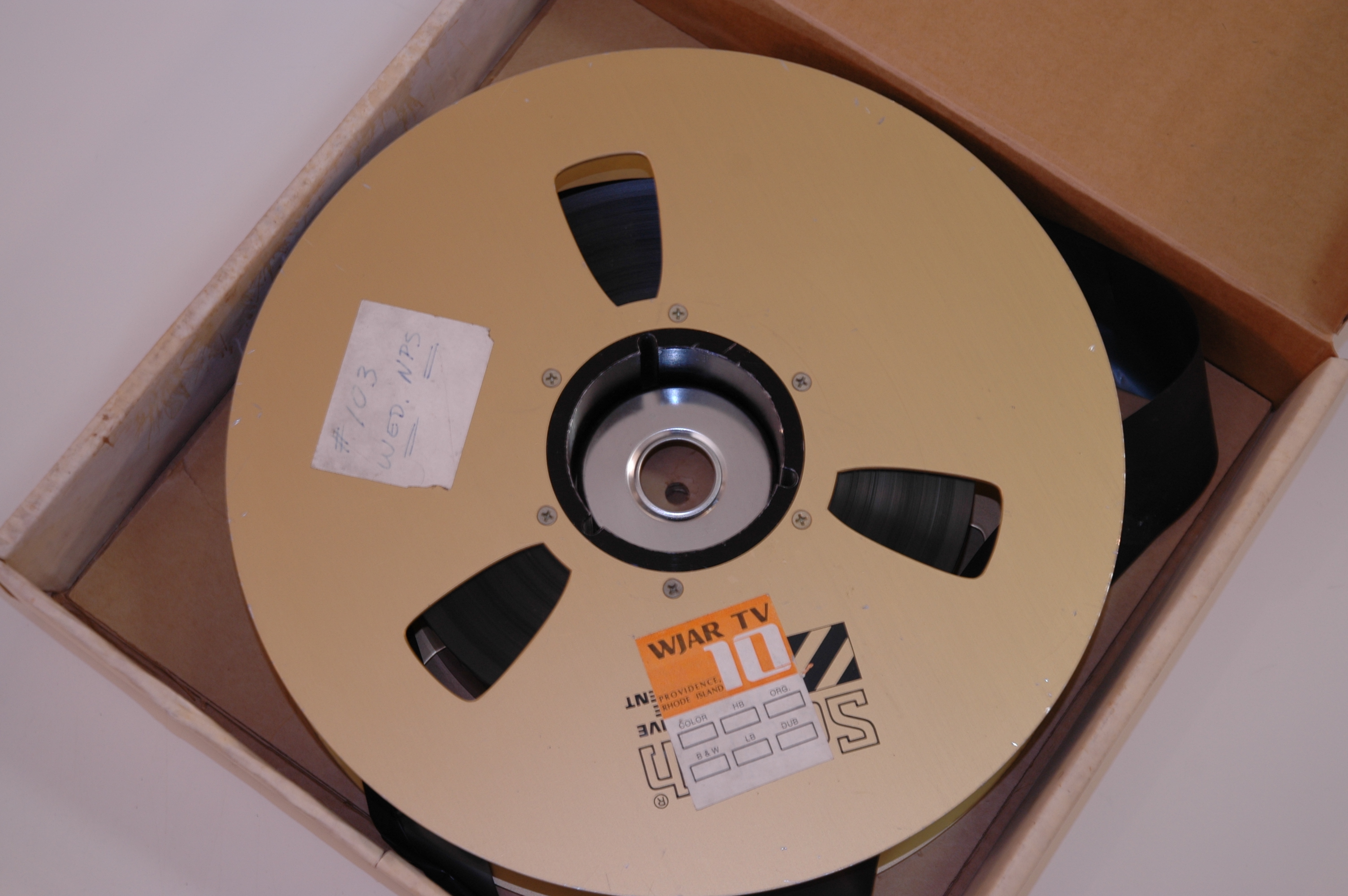
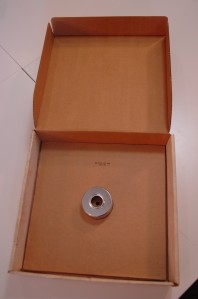
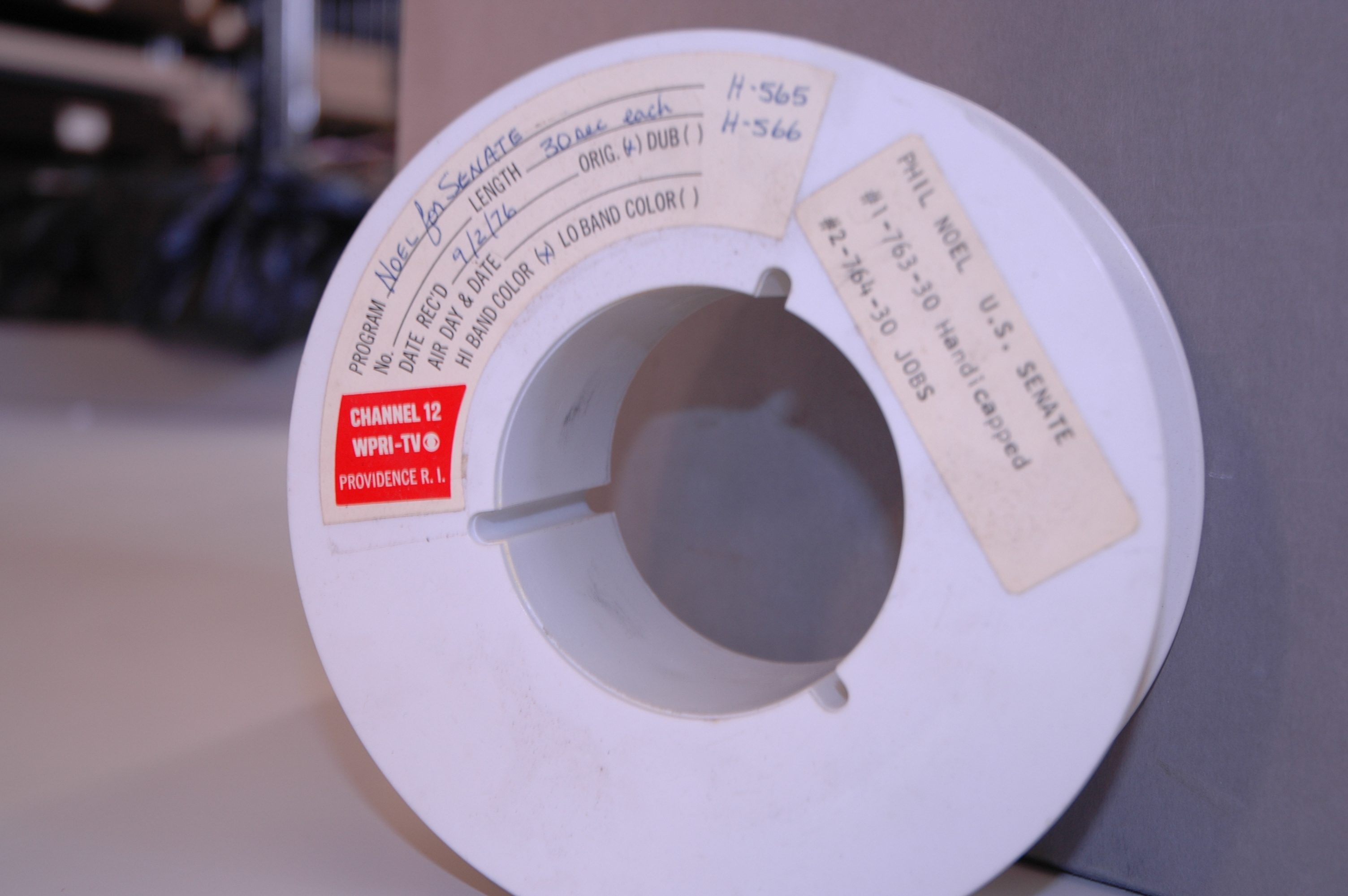
Unless you have one of these videotape recorders (VTR) that is in working order and employ a video engineer to operate and maintain the machine you will not be able to read what is embedded in the magnetic particles of the videotape. The solution is to send selected tapes to a qualified video reformatting company.
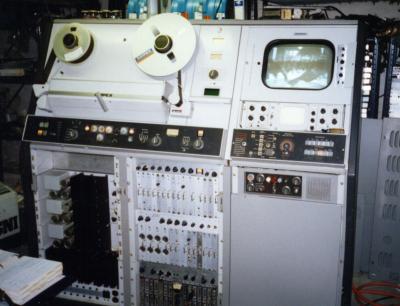
Found at http://www.lionlamb.us/quad/tour.html
The importance of re-formatting analog audio-visual content has never been clearer. The hardware and expertise to operate and maintain playback 2″ reel to reel videotape machines is becoming less and less with each passing day. According to “A Public Trust at Risk: The Heritage Health Index Report on the State of America’s Collections, 2005“:
“The condition of almost half the 86 million film reels, videos, DVDs, records, cassettes, CDs, and MP3s in public collections is unknown, leaving them in probable jeopardy.”
One glaring example of the seriousness of the problem at hand of saving our unique 20th century cultural heritage can be found here: Quadroplex Video Head Refurbishment.
Without a working video playback head, tapes cannot be migrated to a new format. And without reformatting, we risk losing an approximately 40 year chunk of moving image history that documents our social, political, religious, working and consumer lives.
Written by James DaMico, Special Collections Curator/Librarian

2 inch is not a problem for me. I do it every day- and refurbish my own heads in-house.
http://www.quadtapexfer.com
8 quad machines on line and running every day, 6 days a week.
and:
http://www.facebook.com/quadtapexfer , for day to day updates on the ongoing quad work here restoring and digitizing tape collections, as well as a lot of hands-on machine “nuts and bolts” maintenance projects, photos, and information, free of charge.